Blog
Cedar House Life Change Center
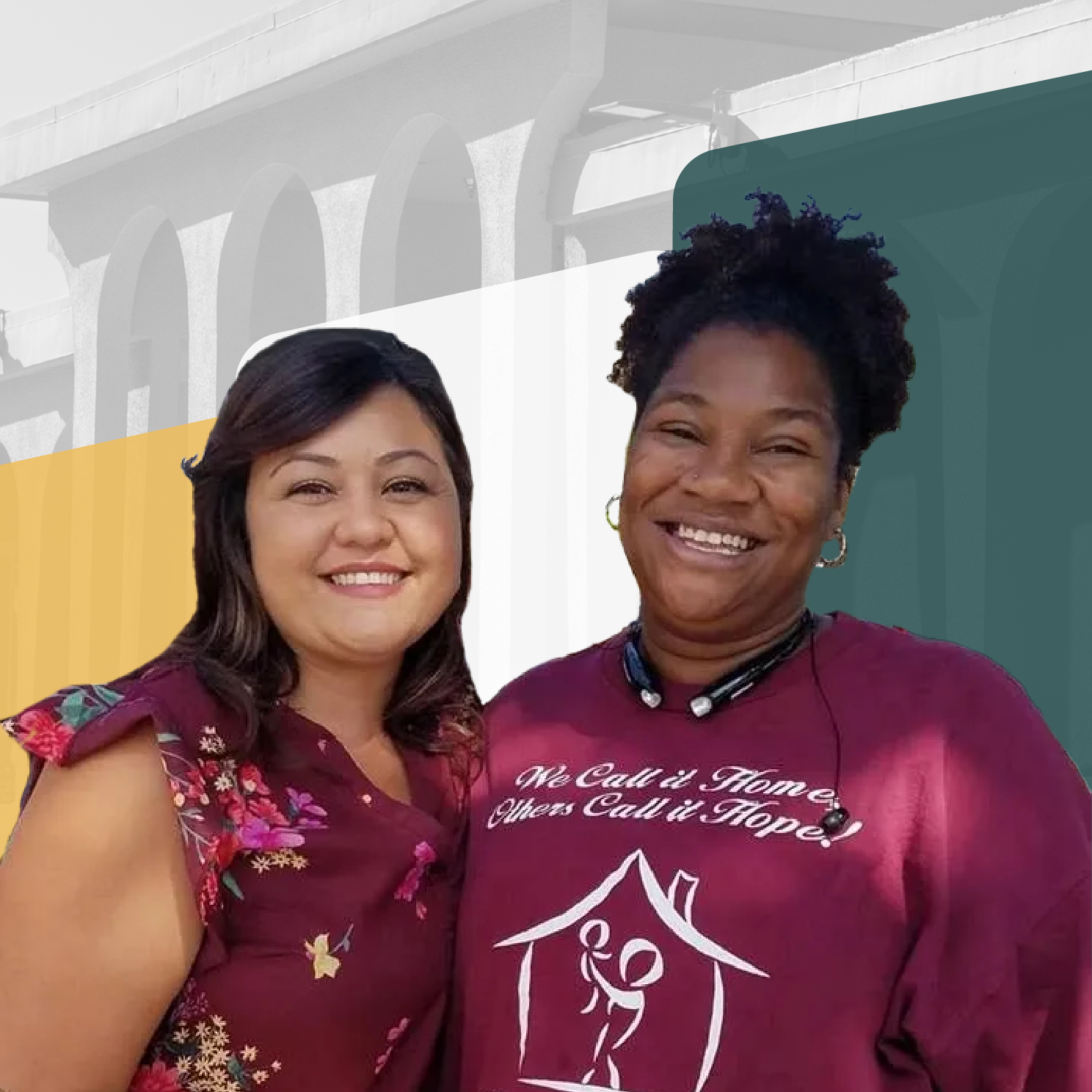
There is nothing quite as powerful as a mother’s love. From the moment her son was born, Sereeta knew she would do everything she could to protect him. She had already experienced the heartbreak of losing her children once, and she was determined never to feel that pain again. Sereeta’s struggle with addiction began at the age of 19. She entered treatment and remained sober for six years, building a life she was proud of. But everything changed when she became a victim of domestic violence. The abuse eventually led to her losing custody of her five children -- a loss that shattered her world and led to relapse. “I could not get away from him. He would try to control me.” Desperate to escape the violence, Sereeta left and began living on the streets. She slept near a shopping center, searching for safety and resources wherever she could find them. One day, at a charity donations center, a woman noticed her and offered help. That connection led Sereeta to Cedar House, where she sought treatment for methamphetamine and marijuana addiction, and where her life began to change. “I knew I wanted a change but didn’t know how.” Years of trauma and loss had taken a toll. Sereeta struggled with anger and didn’t yet know how to process the pain she carried. What surprised her most was the compassion she encountered at Cedar House. Staff members didn’t give up on her. They believed in her, even when she struggled to believe in herself. “I saw that different people had hope in me.” Just one week after arriving at Cedar House, Sereeta was hospitalized. Over the next three weeks, she remained in close contact with staff, calling regularly for reassurance. “I didn’t want to lose my son. I didn’t want to feel that pain again.” After an eight-hour surgery and a blood transfusion, Sereeta gave birth to a healthy baby boy. But the next day, a police officer and social worker arrived at her hospital room with the devastating news that she would not be taking her baby home. Four days later, Sereeta returned to Cedar House with 34 surgical staples, deep emotional wounds, and a renewed determination. “That’s when I believe my journey started. I was fighting for that little boy. I never fought so hard for anything in my life.” The first month was difficult. Sereeta continued to wrestle with anger, grief, and the trauma of her past. “The first month was hard. It was a battle for me.” Over six months at Cedar House, Sereeta did the work. She achieved sobriety, learned healthy ways to manage her anger, and began rebuilding her faith. “I didn’t realize God had something else in store for me. I just had to trust in the process.” After completing treatment, Sereeta transitioned into other supportive housing. Slowly, she began having overnight visits with her son. On August 22, those visits became extended stays. On September 5, she was granted full custody of her baby boy. Today, Sereeta is a full-time Civic Engagement Specialist for a charitable foundation. She lives in her own apartment with her son and spends every other weekend with all of her children. “I have established leadership skills, budgeting skills, and learned how to be a productive member of society as a mother.” Looking back, Sereeta speaks of the “true, honest support” she found at Cedar House. The love and care she received from staff, and even something as simple as an Acceptance Prayer, carried her through moments when she felt overwhelmed. “If it wasn’t for Cedar House, I would still be traumatized by the domestic violence. The staff members showed me love like I’ve never been shown before.” Sereeta’s story is one of resilience, healing, and the power of believing in someone until they can believe in themselves. It is a testament to what is possible when compassion meets commitment, and when a mother is given the support she needs to fight for her future and her family.

When someone is seeking help for drug or alcohol addiction, one of the most important questions to ask is: Is this treatment evidence-based? The answer can make a meaningful difference in recovery outcomes, safety, and long-term stability. At Cedar House Life Change Center, evidence-based treatment is the foundation of everything we do. Our programs are designed using approaches that are backed by research, clinical best practices, and decades of real-world experience serving individuals and families in the Inland Empire. What Does “Evidence-Based Treatment” Mean? Evidence-based treatment refers to therapies and clinical practices that have been scientifically studied and proven effective in treating substance use disorders and co-occurring mental health conditions. These approaches are recommended by national health authorities and continuously evaluated to ensure they improve outcomes. Unlike untested or purely anecdotal methods, evidence-based care relies on: Clinical research Outcome data Professional standards of care Ongoing evaluation and improvement In addiction treatment, this matters because recovery is complex, personal, and deeply impacted by mental health, trauma, and social factors. Why Evidence-Based Treatment Matters in Recovery Addiction affects both the brain and behavior. Effective treatment must address more than substance use alone. Evidence-based treatment: Improves engagement and retention in care Reduces relapse risk Supports mental health and emotional regulation Helps individuals build practical coping skills Increases long-term recovery success For families and referral partners, evidence-based care also provides confidence that treatment decisions are grounded in proven methods—not trends or shortcuts. Evidence-Based Treatment at Cedar House Cedar House has served adults seeking recovery for decades, and our treatment model continues to evolve based on best practices and community need. Structured, Research-Supported Curricula Cedar House utilizes well-established, evidence-based curricula, including: The Matrix Model, a structured approach shown to be effective in treating substance use disorders Living in Balance, a nationally recognized curriculum that addresses substance use, mental health, relapse prevention, and life skills These frameworks provide consistency while allowing flexibility for individual needs. Integrated, Whole-Person Care Evidence-based treatment recognizes that recovery is not one-size-fits-all. At Cedar House, clients participate in therapeutic groups and services that address: Substance use patterns Co-occurring mental health conditions Trauma and stress Family relationships Emotional regulation and coping skills This integrated approach supports both short-term stabilization and long-term recovery. Medication-Assisted Treatment (MAT) When clinically appropriate, Cedar House incorporates Medication-Assisted Treatment (MAT) as part of an evidence-based recovery plan. MAT is widely recognized as an effective tool for reducing cravings, supporting stabilization, and improving treatment retention, especially when combined with counseling and behavioral therapies. Individualized Services While evidence-based models provide the framework, treatment at Cedar House is always individualized. Clinical teams work with each client to develop a plan that reflects their history, goals, strengths, and challenges. T his balance between structure and personalization is a hallmark of effective evidence-based care. Why Evidence-Based Care Matters for Families and Referral Partners Choosing a treatment program is a significant decision. Evidence-based treatment offers reassurance that: Care is aligned with clinical standards Services are ethically and professionally delivered Treatment approaches are supported by research and outcomes Recovery planning is intentional and goal-oriented For referral partners, evidence-based programs help ensure continuity of care and better outcomes for the individuals they serve. A Commitment to Quality and Accountability At Cedar House, evidence-based treatment is not a buzzword. It’s a commitment. Programs are continually reviewed, staff are trained in best practices, and services are delivered with compassion, accountability, and respect for each individual’s recovery journey. Getting Help That’s Grounded in What Works If you or a loved one is exploring treatment options, understanding whether a program uses evidence-based approaches is an important first step. At Cedar House, treatment is grounded in what works because recovery deserves care that is informed, intentional, and proven. To learn more about Cedar House programs or to access services using private health insurance, explore the website or call 909-421-7120 today.

The holiday season can be joyful but also challenging. For many people, the holidays are a time of togetherness and celebration. But for those in recovery from substance use, this season can bring a mix of emotions -- joy and gratitude, but also stress, temptation, and pressure. Family gatherings, social events, and memories of past holidays can test even the strongest commitment to sobriety. At Cedar House Life Change Center, we understand these challenges. Our mission is to help individuals and families build lasting recovery through treatment, education, and ongoing support. Here are a few practical ways to protect your sobriety and stay connected to hope this holiday season. 1. Plan Ahead for Triggers Before attending a party or event, think about what might challenge your recovery. Bring your own non-alcoholic drink, drive yourself so you can leave early if needed, and connect with your sponsor or peer network before you go. Preparation gives you confidence and control. 2. Stay Connected to Your Support System The holidays can feel isolating, especially if you’re making lifestyle changes. Reach out to supportive friends, family members, or recovery peers who understand your journey. Schedule a check-in or attend a support group before and after big events. Staying connected helps you stay grounded. 3. Prioritize Self-Care Take care of yourself, physically, emotionally, and spiritually. Maintain regular sleep, eat balanced meals, get outside, and make time for reflection or prayer. A calm and nourished mind is your strongest ally in maintaining sobriety. 4. Set Boundaries and Say “No” Without Guilt You don’t have to attend every event or explain your choices. Declining an invitation or leaving early doesn’t make you antisocial. It makes you strong. Your recovery is your priority, and real friends and loved ones will respect that. 5. Keep Recovery at the Center of the Season Stay consistent with meetings, counseling, or alumni groups. Cedar House offers aftercare support, relapse prevention programs, and peer connections that help clients stay engaged long after treatment. Recovery doesn’t stop after discharge. It’s a lifelong process of growth and renewal. You Don’t Have to Do This Alone If you or someone you love is struggling this holiday season, Cedar House Life Change Center is here to help. Our compassionate team provides evidence-based treatment, medical support, and recovery programs designed to meet each person’s unique needs. Reach out today to learn how we can help you or your loved one find peace, purpose, and sobriety this holiday season and beyond.
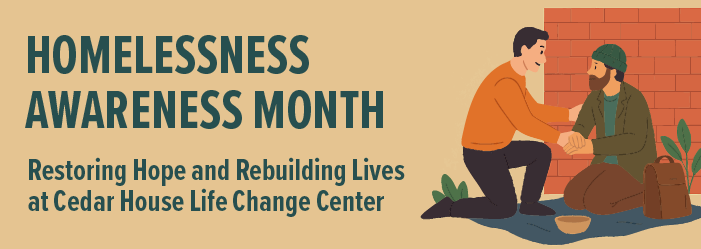
November is Homelessness Awareness Month, a time to shed light on one of the most urgent issues facing our communities. Every day, thousands of individuals and families across San Bernardino County struggle with the devastating cycle of homelessness, often intertwined with substance use and mental health challenges. At Cedar House Life Change Center, we believe that recovery and stability begin with compassion, connection, and comprehensive care. For more than five decades, Cedar House has provided a safe haven for those seeking to overcome addiction and rebuild their lives. Many of the people we serve come to us after experiencing homelessness or unstable housing—circumstances that make recovery even more challenging. Through our evidence-based treatment programs, sober housing resources, and continuum of care, we help individuals find the structure, support, and self-worth needed to thrive. Our services address more than substance use. We provide mental health counseling, case management, and referrals to permanent housing, recognizing that recovery is not complete until every person has a safe place to call home. For many, Cedar House becomes the bridge from crisis to stability—where individuals rediscover hope, rebuild family connections, and prepare for lasting independence. This month, we invite our community to join us in raising awareness, reducing stigma, and supporting efforts to end homelessness. Whether through donations, volunteering, or spreading the word, every act of compassion brings us closer to a future where recovery and housing are accessible to all. At Cedar House, we know that healing happens one person—and one home—at a time.
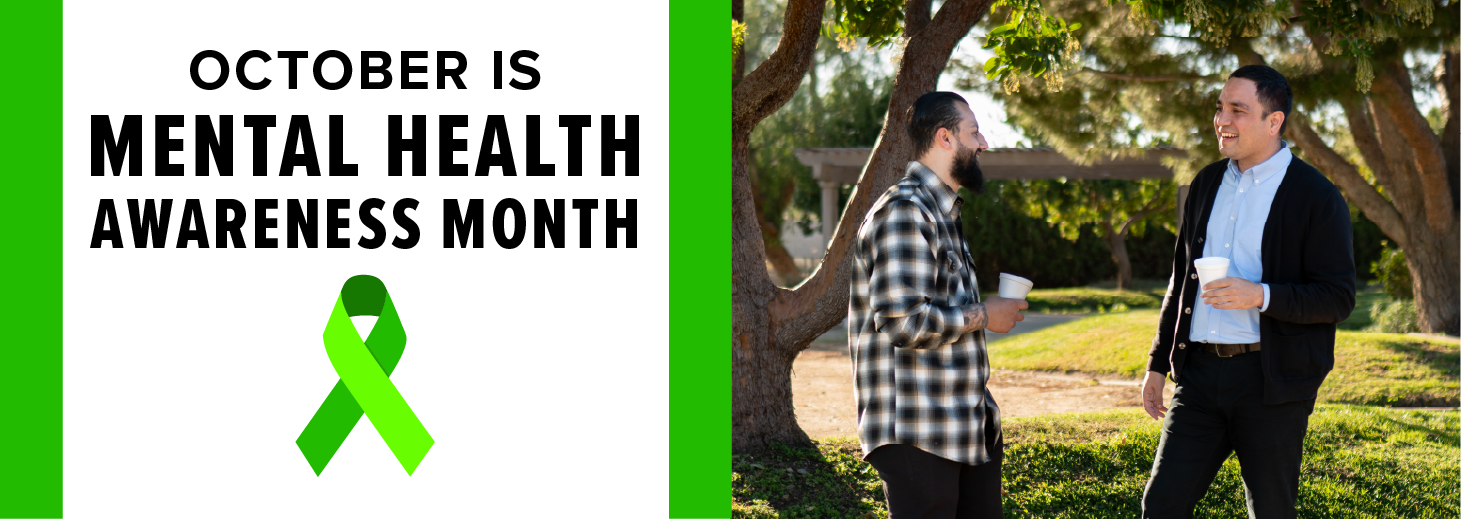
Each October, Mental Health Awareness Month reminds us that recovery and healing are possible for everyone. At Cedar House Life Change Center, we understand that mental health and substance use are deeply connected. Many people who struggle with addiction are also coping with conditions such as anxiety, depression, or trauma—and each affects the other. Treating both together is essential to lasting recovery. For more than 52 years, Cedar House has been helping individuals and families throughout the Inland Empire rebuild their lives through compassionate, evidence-based treatment. Our staff empowers people to overcome addiction and mental health challenges with respect, dignity, and hope. Tips for People Seeking Support If you or someone you love is struggling, here are a few ways to start your journey toward recovery: 1. Reach out for help early. You don’t need to wait for a crisis to ask for help. Early intervention can prevent harm and improve long-term success. 2. Get a professional assessment. At Cedar House, licensed clinicians assess each individual’s physical, mental, and emotional health to create a personalized plan. 3. Find community support. Recovery grows in connection. Peer support, counseling, and family engagement help build resilience and accountability. 4. Create stability. Safe housing, structured routines, and supportive care environments help lay the foundation for recovery. 5. Commit to ongoing care. Recovery doesn’t end after treatment—it continues through outpatient services, counseling, and ongoing connection to support systems. How Cedar House Life Change Center Can Help Cedar House offers a continuum of care designed to meet people wherever they are in their recovery journey: Withdrawal Management and Residential Treatment — Structured programs for men and women addressing both substance use and co-occurring mental health disorders. Maple House Perinatal Program — Family-centered services for mothers and children to recover and thrive together. Outpatient and Aftercare Programs — Continuing care, therapy, and relapse-prevention strategies for lasting stability. Family Support — Counseling and education to strengthen families and rebuild relationships. Our integrated treatment model ensures that every client receives comprehensive, coordinated care. You Are Not Alone This Mental Health Awareness Month, Cedar House encourages everyone to talk openly about mental health and seek support when needed. Recovery is not a solitary journey—it’s a shared path toward healing, strength, and renewal. If you or someone you love is struggling with substance use or co-occurring mental health issues, contact Cedar House Life Change Center today. Together, we can help you find hope, healing, and a fresh start.
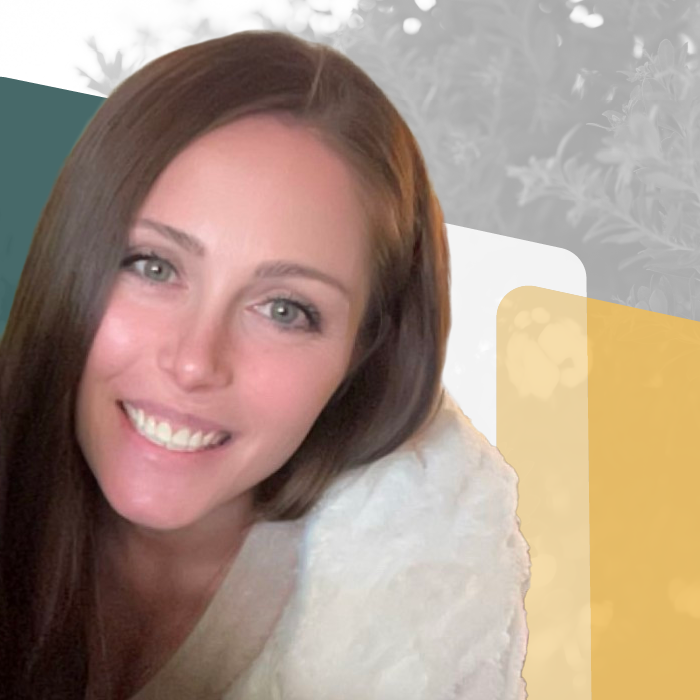
When Nikki first realized alcohol was destroying her life, it was 2012 — the year she nearly lost it entirely. On May 12, 2012, she made the decision to stop drinking. That same day, her body collapsed under the weight of years of alcohol abuse. She began bleeding heavily, vomiting stomach acid, and was rushed to the hospital. Her heart stopped. Medical staff performed CPR for 6 minutes and 38 seconds before bringing her back. Nikki survived, but her road ahead was long. She spent two months in the hospital, then entered Alcoholics Anonymous and worked the program. She stayed sober for two years — but like so many battling addiction, she relapsed. Over the years, her drinking escalated to 4–6 liters of vodka a week, often leading to hallucinations, psychosis, and dangerous detox episodes. Legal troubles, family struggles, and her son’s complex medical needs weighed heavily on her. Her breaking point came after her young son — who had cerebral palsy — faced a series of health crises. Despite staying sober for two years, the mounting stress and heartbreak eventually pushed her back into the cycle of drinking. Nikki tried multiple recovery programs, but medical complications and relapses kept pulling her back down. She knew alcohol was destroying her, but the pull was relentless. Then came Cedar House. Nikki says the outpatient program there changed everything. It gave her structure, accountability, and—most importantly—nonjudgmental support. Even during relapse, she knew Cedar House would welcome her back with compassion and encouragement. While in treatment, Nikki endured one of the most devastating moments of her life — the loss of her son in November 2022. In her grief, she had the tools and the people to help. She leaned on therapy, grief counseling, church, her sponsor, and the fellowship of AA. She refused to give up. With encouragement from her Cedar House counselor, Nikki pursued a lifelong dream: becoming a psychiatric technician. She enrolled at Mt. San Antonio College and not only completed the program but graduated valedictorian in June 2025. She is now preparing for her state board exams and continuing her personal growth, sobriety, and service to others. Nikki knows that recovery is a lifelong process. “When you’re sick and tired of being sick and tired, you have to get the right tools in place,” she says. “The people at Cedar House believed in me, even when I couldn’t believe in myself. They gave me a safe place to come back to—without judgment—every single time.” Today, Nikki is living proof that with the right support, a person can come back from even the darkest moments and build a successful life.
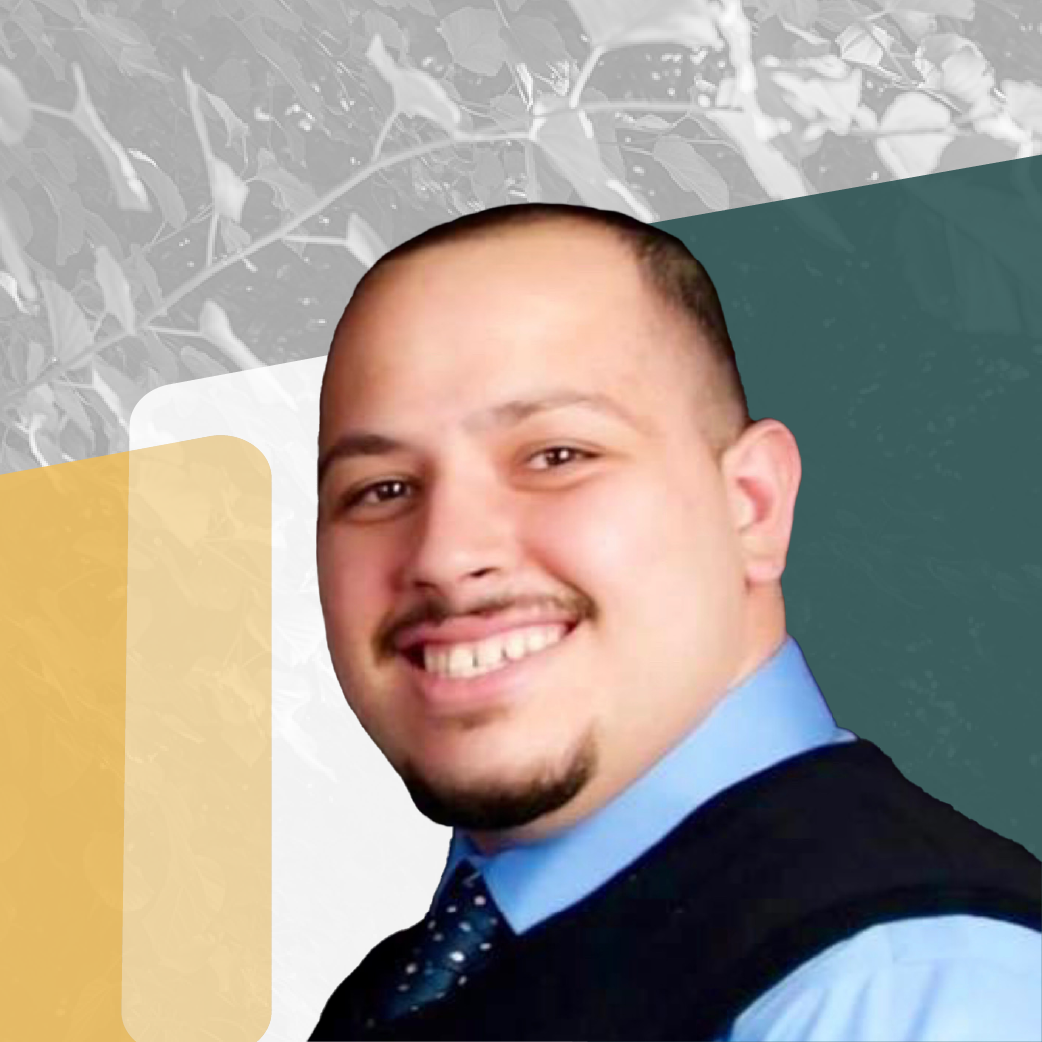
When Steven was in his final days of treatment at Cedar House, he took time to write about his experience and share his story with his group. This is his heartfelt reflection in his own words: My name is Steven, and I am a recovering drug addict. Throughout my life I have used a variety of drugs from marijuana, cocaine, meth, and heroin to fentanyl. There would be times when I would hear people share and say that they are just like me. But I am not going to do that today, because I have no idea of what your stories are. What I would like to do is share a little bit of my story and what I have been through, and maybe you can relate to it. In my story, I took a path with so much pain and adversity. I would hide the pain from everyone. At a very young age, I was molested. This started my journey of PTSD and drug addiction. I would hide and isolate from people because I was terribly afraid of what people would think of me. I felt ashamed for what had happened to me. So, when my sister offered me drugs at a young age, I did them with her, and I felt a sense of relief. It would numb the pain and embarrassment that I felt from what had happened. My self-pity drove me into doing more and more drugs. I would blame myself for what that person did to me. I was so angry that I had no control over what had happened. I was just a child. I bottled up my feelings and buried them deep down inside. It would eat at me every day -- day in and day out. Growing up, the pain would lurk its ugly head. The worst it ever got was when I was alone in the dark. I felt so much fear growing up. This is something I had to overcome and learn from. Life is so interesting. It makes us walk through different paths of choices. We are unable to see the destruction and pain we are about to go through. These challenges mold us and makes us the people we are today. There are two experiences that I would like to share with you today. The first is my divorce and the second is the death of my sister. These events steered me into a life of addiction, and I hope my message can help change at least one life. I know that I felt exhausted from the life of chasing -- chasing for a cure that would never appear. My divorce was not something simple. It ate at me every day. I got there through a series of issues that happened. I was fired from my job. I had to sell my home that I bought for my now ex-wife and my unborn son. I sat and cried in my son's room alone because I felt like a failure. During all of this, I was hiding my addiction until I couldn't handle it anymore. My wife found out and kicked me out of our apartment. I felt so angry, I felt like she threw me out like trash. I was acting like a child, instead of dealing with it like I should have. I was so hard on myself. I felt like I was losing control, but the lesson to this is to allow things to go. I needed to surrender to this. I also learned that I needed to ask for help instead of hiding from the issues. This takes me to my next lesson -- when my sister passed. When my sister passed away, it was seven days of hell. She passed due to multiple abscesses, one on each arm and one in her stomach. I stayed up for seven days changing her bedding because she would either defecate or urinate on herself. I cleaned her and watched her as she tried to sleep but couldn't because of the pain. I tried to plead with her to let me call 911 because at the time, I had no idea what was happening. She would say, "No, I want to wait for mom to come home." Our mother was away on vacation visiting family out of the country and would return in seven days. I can still hear her cries of agony, day after day. She made me promise that I wouldn't call 911 until our mother returned. So, I kept that promise and kept her secret. I never knew what an abscess was and how serious it would become. After the 7 days were up, our mother returned home. The next morning, we called 911. My mother was frantic and didn't know what to do. Even in agony my sister lied to the EMTs; she said nothing about her use. My sister wanted our mother to not find out her secret. I couldn't stay quiet any longer, I told the EMTs everything, but it was too late. My sister passed away after two days. The doctors tried to take the contaminated blood out of her system, but nothing they did helped. It was just too late. Prior to all of this, I would plead with my family to help my sister. They just did not want to believe that there was a problem. During her funeral, everyone was upset and saying they could have done this or that. I was so disgusted with my family that I didn't attend. I wanted to remember my sister by the good times and not the last seven days of her life. I felt so much guilt over what had happened. I had to deal with the pain. I had to let go of the resentment, anger, fear, sadness, judgement, secrets, hurt, blame, and guilt. I had to put my faith in something more. I had to put my faith in a higher power. So, I had to make some changes in my life. I started making commitments. Making a commitment every day to stay sober requires faith. If I make the necessary changes, things will get better. I need to accept that some choices and things are out of my control, and I need to be okay with that. I will trust myself in making the changes that are needed and have pride in myself. My selfishness will be in my sobriety and not in negative actions towards people. Faith can be anything I desire it to be. Cedar House has taught me to take responsibility in myself, my actions, my behavior and, most importantly, in my addiction. Throughout this journey, I have learned to love myself again, to work on my character defects, and to gain so many new brothers in sobriety. In life, so many people make mistakes, and you can choose to get up and make the necessary changes or get beat down. And I was beat down over and over again. I walked into rehab beaten, bruised, and broken. It was challenging, but over time the bruises healed and the bones that were broken started to heal as well. I am grateful to overcome the mountain of rehabilitation. I didn't do this by myself. It took a brotherhood of men who were broken and beaten, too. We all faced our fears in our own time. It also took the patience and care of our counselors. They gave us guidance and advice that we desperately needed. They were the lighthouse to our battered ships. Without them we wouldn't know which way to steer. To my brothers in the war for sobriety, I say, my love goes out to you, to the ones who are healing, and to the ones who still need help. To the staff of Cedar House, no amount of gratitude will express how much I am thankful for. You revived my broken soul. I will end with one final thing to my brothers, you're not alone.
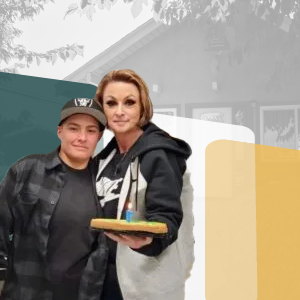
As a teenager, Sabrina overcame the challenges of bouncing around numerous foster and group homes, frequently being rejected for her sexuality. She emancipated from the system and prepared herself to start school. The company she kept, unfortunately, led her down a dark path instead. The young woman with whom Sabrina had a relationship since the age of 15 was a drug addict. She used meth on a regular basis and tried to convince Sabrina to join her. Sabrina wasn’t interested. As a matter of fact, she argued with her girlfriend time and again begging her not to use. But ultimately, there came a time when Sabrina lost that argument and was persuaded to try using meth herself. She was living in a group home in Pasadena when it happened. Sabrina said, “I can’t count how many group homes and foster homes I had lived in.” Her girlfriend and roommate surprised her by using meth in her room while she was in the shower. She said, “I was scared of meth. I wouldn’t touch it.” When she entered the room and saw that they were using, they fought for a long time before her girlfriend finally said, “If you love me, you’ll try it.” And that was the final straw. Shortly after that first experience with meth, Sabrina and her girlfriend, both addicted, were kicked out of the group home. She was homeless, hadn’t started school and was barely getting by with cash aid and food stamps. Even at times when Sabrina wasn’t interested in getting high, her girlfriend would manipulate her into using. Sabrina lived under a bridge on a binge in Pomona for three years. During that time, she met up with an old boyfriend which led to an unexpected pregnancy. She said, “I didn’t even know I was pregnant until I went into labor. I was so high and so skinny.” The paramedics immediately took the baby girl away, but that was a turning point for Sabrina. She said, “I fought tooth and nail to get her back.” Her social worker asked if she would be willing to go to rehab in order to gain custody of the baby, and Sabrina wholeheartedly agreed. She called every day to inquire about getting into a residential program. In March 2018, she was admitted to the Maple House program. She simply wasn’t ready. During her stay at Maple House, she was rude, disobedient and angry. By May she had made very little progress, and her behavior led to her dismissal from the program. A few months later, she entered another rehab program where she served as kitchen coordinator and began to make some progress toward sobriety. She got in trouble there for breaking rules and was dismissed from that program as well. Next, she tried an outpatient program and continued staying clean and sober. She moved into a sober living facility. When one of her drug tests came out questionable, she had to leave that home, too. She said, “I ended up losing my home and losing faith again. I went back to the streets in Pomona.” On February 21, 2019, her social worker managed to get her back into the treatment program at Maple House. This time she was ready. She loved her counselors and learned so much from them. Sabrina said, “They really helped me through it. Rosanna opened my mind. Rita taught me to cook and gave great advice. They were always there to listen, and they motivated me to do good. I could talk to them instead of getting angry.” At Maple House, Sabrina learned the importance of surrounding herself with kind-hearted people who not only care about her, but also continuously build her up to be the woman she was born to be. She has been sober for nearly two years and is the proud mother of two young girls.



Share On: